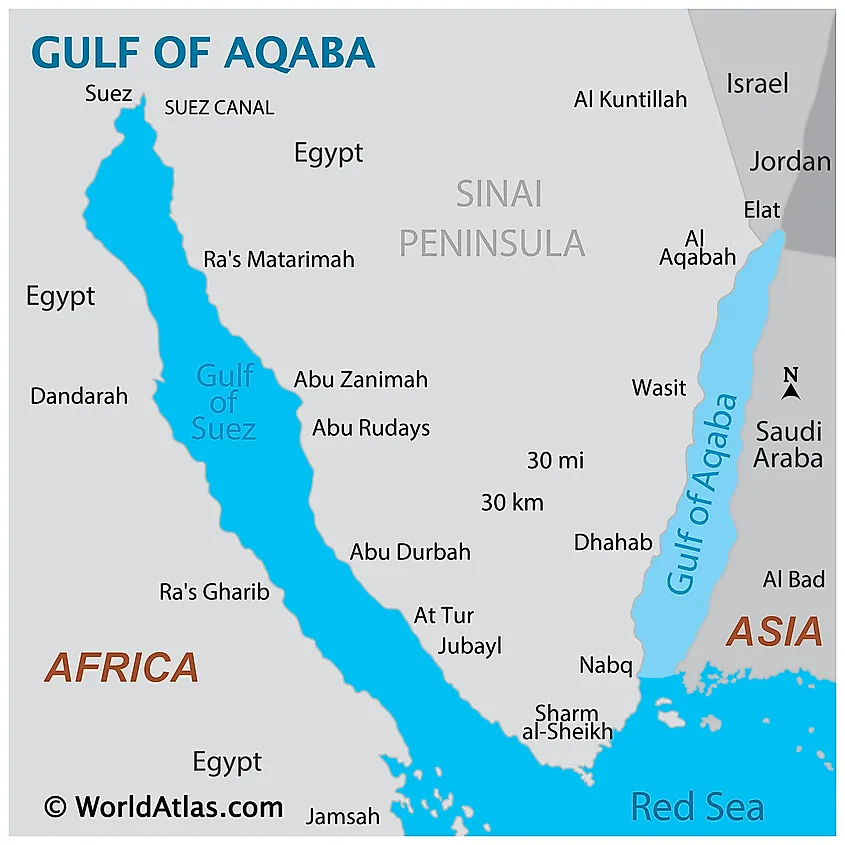Gulf of Eilat

- 19 Feb 2025
In News:
A new study has revealed that the coral reefs in the Gulf of Eilat (also known as the Gulf of Aqaba) faced a 3,000-year growth shutdown due to global cooling. However, these reefs later recovered naturally from deeper waters, demonstrating resilience in the face of environmental changes.
About the Gulf of Eilat (Gulf of Aqaba)
- Location: The Gulf of Eilat is a northern extension of the Red Sea, positioned east of the Sinai Peninsula and west of the Arabian Peninsula. It is strategically significant and is also known as the Gulf of Aqaba.
- Neighbouring Nations: The Gulf shares its coastline with four countries: Egypt, Israel, Jordan, and Saudi Arabia.
- Geographical Features:
- The Gulf includes important cities like Taba (Egypt), Eilat (Israel), and Aqaba (Jordan), all located at the Gulf’s northernmost point.
- It has a maximum depth of 1,850 meters, making it much deeper than the adjacent Gulf of Suez.
- The Gulf forms the southern end of the Dead Sea Transform, a significant tectonic fault zone, contributing to its unique geological and environmental features.
- Coral Ecosystem: The Gulf of Eilat is home to the world’s northernmost coral reefs. Despite facing various environmental challenges, these reefs have shown remarkable resilience over the years, highlighting their ability to adapt to changing conditions.
Environmental Challenges and Recovery
- The 3,000-year growth shutdown of the coral reefs in the Gulf of Eilat was primarily driven by global cooling. This climatic phenomenon significantly impacted the growth of the reefs, causing a temporary halt in their development. However, the coral ecosystems in the Gulf have since recovered naturally, drawing from deeper waters to rebuild and thrive once again.
- This recovery underscores the resilience of coral ecosystems despite adverse environmental conditions. It also provides valuable insights into how these ecosystems can recover when given the opportunity, even after significant disruptions caused by global climate changes.
Implications for Coral Reef Conservation
- The study's findings emphasize the importance of understanding the adaptive capacity of coral reefs, which are among the most vulnerable ecosystems to climate change.
- The ability of coral reefs in the Gulf of Eilat to recover after a prolonged period of cooling demonstrates that marine ecosystems can endure long-term environmental stress if they are allowed to regenerate naturally.
- This has significant implications for global coral conservation efforts, which must focus on creating conditions that allow reefs to adapt and recover from environmental stresses, including global warming, ocean acidification, and pollution.
- The Gulf of Eilat’s coral reefs provide an important case study for understanding ecological resilience and the potential for natural recovery in marine ecosystems.
